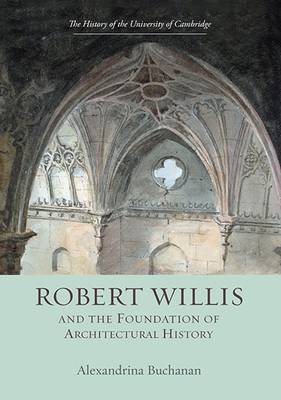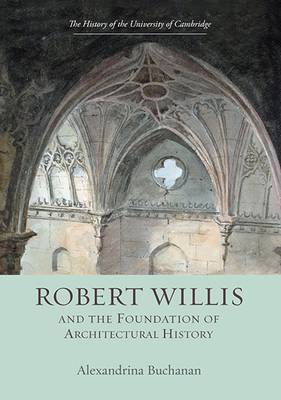
- Afhalen na 1 uur in een winkel met voorraad
- Gratis thuislevering in België vanaf € 30
- Ruim aanbod met 7 miljoen producten
- Afhalen na 1 uur in een winkel met voorraad
- Gratis thuislevering in België vanaf € 30
- Ruim aanbod met 7 miljoen producten
Zoeken
Robert Willis (1800-1875) and the Foundation of Architectural History
Alexandrina Buchanan
€ 257,95
+ 515 punten
Omschrijving
The first full-scale biography of Robert Willis, the "founding father" of architectural history. WINNER of the Cambridge Association for Local History book award 2016 Robert Willis was the archetypal nineteenth-century polymath. Officially, as Jacksonian Professor of Natural and Experimental Philosophy at the University of Cambridge, he specialized in the study of mechanism, which he also taught at the Royal School of Mines in London. In the field of science he was an experimentalist, inventor and educational innovator. Meanwhile, in his spare time, he pursued his passion, pioneering the serious study of architectural history. Initially his work was aimed at architects - his role in providing an intellectual underpinning to the contemporary Gothic Revival was acknowledged by the award of the gold medal of the Royal Institute of British Architects in 1862. However his main contribution was more historical. Starting with Canterbury, in 1844, over the course of his career, he investigated almost every English cathedral and developed an approach, combining documentary and archaeological research, which remains in use today. His studies culminated in the monumental Architectural History of the University of Cambridge, still the definitive account of its subject.
In this fascinating and lavishly illustrated intellectual biography, drawn from extensive archival and architectural research, the author sheds new light on the interconnections between Willis's varied fields of interest and his fundamental role in the creation of a discipline. ALEXANDRINA BUCHANAN is both an architectural historian and an archivist; her introduction to archives came throughcataloguing the papers of Robert Willis at the Cambridge University Library. She is now Lecturer in Archive Studies at the University of Liverpool.
In this fascinating and lavishly illustrated intellectual biography, drawn from extensive archival and architectural research, the author sheds new light on the interconnections between Willis's varied fields of interest and his fundamental role in the creation of a discipline. ALEXANDRINA BUCHANAN is both an architectural historian and an archivist; her introduction to archives came throughcataloguing the papers of Robert Willis at the Cambridge University Library. She is now Lecturer in Archive Studies at the University of Liverpool.
Specificaties
Betrokkenen
- Auteur(s):
- Uitgeverij:
Inhoud
- Aantal bladzijden:
- 470
- Taal:
- Engels
- Reeks:
- Reeksnummer:
- nr. 8
Eigenschappen
- Productcode (EAN):
- 9781843838005
- Verschijningsdatum:
- 15/08/2013
- Uitvoering:
- Hardcover
- Formaat:
- Genaaid
- Afmetingen:
- 175 mm x 249 mm
- Gewicht:
- 1319 g

Alleen bij Standaard Boekhandel
+ 515 punten op je klantenkaart van Standaard Boekhandel
Beoordelingen
We publiceren alleen reviews die voldoen aan de voorwaarden voor reviews. Bekijk onze voorwaarden voor reviews.











